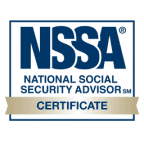It’s important to know what Medicaid covers for seniors in Texas, as well as how to apply for coverage if you or a senior loved one are living in Texas, Leander, and considering, or currently paying for, senior living or senior care. As each state has its own Medicaid program, don’t forget to check the eligibility criteria for your state.
What is the definition of Medicaid in Texas?
As part of Medicaid, eligible needy people get medical coverage through a cooperative venture between the government and the state. With Medicaid in Texas, including the city of Leander, people and their children will have access to medical care they otherwise wouldn’t have. By focusing on prevention, promoting continuity of care, and establishing a medical home for Medicaid recipients, the program aims to improve the health of Texans, providing a high level of care for every recipient.
How do I know I’m eligible for Medicaid in Leander, Texas?
The Texas Medicaid program offers healthcare coverage to low-income families, seniors, and disabled individuals. It’s funded by federal and state governments, aiming to provide affordable and comprehensive healthcare to those eligible.
Seniors qualify if they’re 65 or older, earning up to 100% of the Federal Poverty Level (FPL). This means $1,064/month for an individual and $1,437/month for a couple. Asset limits are $2,000 for individuals and $3,000 for couples in 2023, covering savings, retirement, and property, except for the primary residence which is exempt.
How to apply for the Medicaid Program in Leander, Texas?
Before seeking Medicaid in Texas, consult a local senior care expert to confirm eligibility and understand Medicaid’s coverage for you or your senior loved one. Also, explore alternative funding options for senior care beyond Medicaid. Once you’ve decided on Medicaid, follow these steps for the application:
- Check eligibility: Verify eligibility through the Texas Health and Human Services Commission (HHSC) website, dial 2-1-1 in Texas, or call toll-free at 877-541-7905.
- Gather information: Collect necessary data like Social Security number, income proof, residency, citizenship, and details of medical providers.
- Apply online: Visit the YourTexasBenefits website, create an account, answer questions, and upload the required documents. Check application status online.
- Apply by phone: Dial 1-800-252-8263 for HHSC Medicaid and Managed Care hotline assistance. A representative will guide you through providing information.
- Apply by mail: Request a paper application by calling 2-1-1 or visiting a local HHSC office. Fill out the form and mail it with the necessary documents.
- Apply in person: Visit a local HHSC office with the required documents and a photo ID. An HHSC representative will assist you in completing the application.
What is covered by Medicaid in Texas?
Texas Medicaid’s extensive healthcare services package covers everything from doctor visits to preventative care. All of these services are covered under the program. Of particular note is the adoption of telehealth, providing remote healthcare access to rural seniors, and alleviating transportation difficulties.
For seniors in senior living or assisted care, Texas Medicaid presents diverse benefits:
- Long-term care: Catering to nursing homes, personal care, and home health requirements, these services prioritize seniors’ living needs.
- Medical supplies: Items like wheelchairs, walkers, and incontinence supplies are part of the overall collection.
- Prescriptions: Medication for chronic conditions is included.
- Mental health: Encompasses counseling and therapy services.
These perks improve accessibility and care quality for seniors, with a special focus on rural regions and transportation difficulties.
What is Texas Managed Care?
The integration of traditional Medicaid and managed care in Texas results in a robust healthcare program. Through the United States government, medical coverage is granted to those with low incomes, Medicaid being the program in question. In contrast, managed care revolves around a group of healthcare providers cooperating to reduce costs and enhance the quality of care.
By centralizing healthcare services, Texas has migrated to a managed care system benefiting Medicaid recipients. Medicaid services are administered through MCOs or HMOs that have partnerships with the state. Medicaid recipients can access a wide range of healthcare services through these organizations, which manage and organize them.
By consolidating and organizing healthcare services, Texas Medicaid Managed Care works toward better health outcomes, cost management, and expanded access to a diverse portfolio of healthcare resources. The selection of a managed care plan leads to a network of providers managing and coordinating healthcare services.
Important to consider is the fact that the Texas Medicaid Managed Care program’s details may develop over time and shift. If you are in search of updated and detailed information, the Texas Health and Human Services Commission’s official website or consultations with Texas’s healthcare agencies are recommended.
What is Dual-Eligibility in Texas?
If you qualify for Medicare and Medicaid, this is considered as dual-eligibility. To qualify for dual-eligibility, you need to:
- Meet your state’s Medicaid income requirements.
- Be eligible for Medicare based on age or disability.
Upon becoming dual-eligible, the majority of your healthcare expenses will be taken care of. Medicaid covers your Medicare Part A premium (if applicable) and the standard Medicare Part B premium for all qualifying recipients.
When you enroll Medicare Part A, Part B, and Medicaid, you also become eligible for Dual Special Need Medicare Advantage Plans. These plans combine the advantages of both Medicare and Medicaid, offering beneficiaries prescription drug coverage and other essential benefits.
Alongside Medicare and Medicaid, those with dual eligibility are automatically enrolled in Extra Help, which covers the expenses associated with prescription drugs.








